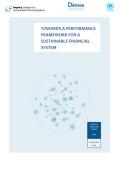
This paper, Towards a Performance Framework for a Sustainable Financial System, is intended to serve as a window on the Inquiry’s analytical approach, providing a deeper understanding of the unifying criteria for evaluation of multiple market designs for financial systems in a variety of economic, political and social settings.
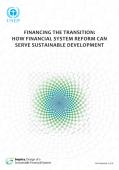
This report, Financing the Transition – How Financial System Reform Can Serve Sustainable Development, is focused on understanding how the growing number of policy and regulatory measures taken in the financial system can support a real economy in transition.
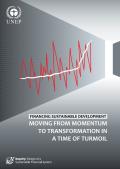
This report, Financing Sustainable Development: Moving from Momentum to Transformation in a Time of Turmoil, proposes five steps to embed financing for sustainable development at the heart of tomorrow’s global financial system and deliver the much-needed transformation.
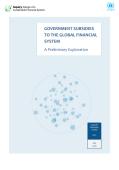
The primary goal of the present study, Government Subsidies to the Global Financial System, is to understand the character and to estimate the total value of subsidies, both direct and implicit, from governments to the private sector institutions that make up the global financial system.
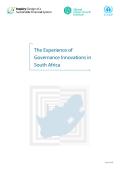
This paper, The Experience of Governance Innovations in South Africa, explores whether the extent to which Regulation 28, CRISA and JSE Integrated Reporting Standards have influenced the level of investment that integrates Environmental, Social and Governance (ESG) in its decision making process.
